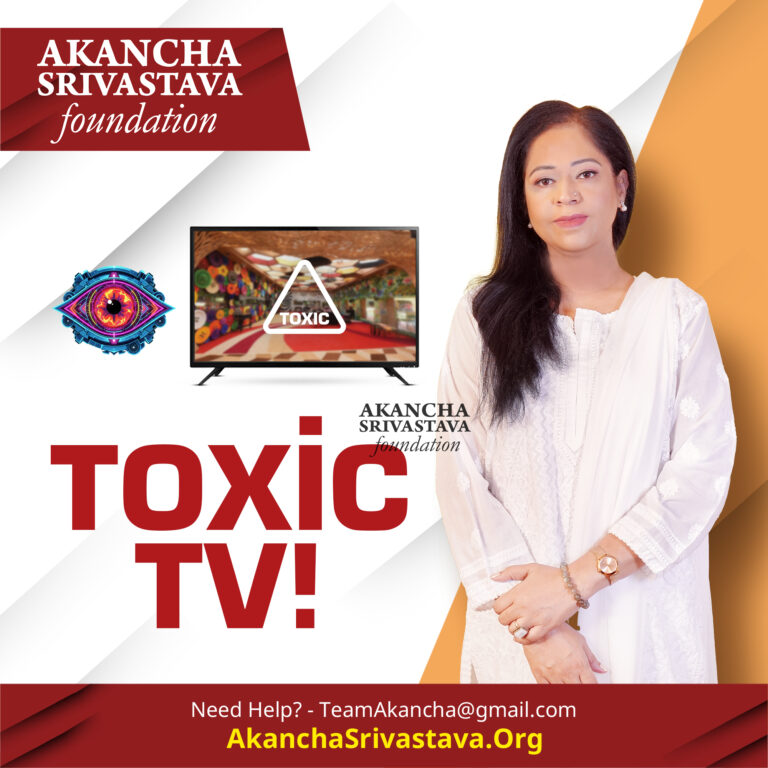Entertainment has the power to inspire.
But some formats thrive on conflict, humiliation, and manipulation. Reality shows built around constant fighting, scheming, and public shaming are not just “harmless drama.” They can have a measurable negative impact on mental health.
Impact of Toxic Reality Content:
- Normalising Hostility:Viewers, including children, see aggression and manipulation being rewarded. This can desensitise audiences to bullying and promote toxic behaviour as entertainment.
- Triggering Anxiety:Constant verbal fights and psychological games can trigger stress responses, especially in viewers already dealing with anxiety or depression.
- Distorted Social Lessons:These shows present backstabbing and scheming as a survival skill, reinforcing unhealthy relationship models.
- Celebrity Culture Pressure:Participants’ reputations are destroyed or sensationalised for ratings, encouraging public judgement and cyberbullying.
- Copycat Behaviour:Youth sometimes imitate contestants, using similar language or aggression in their real lives, believing it to be acceptable.
- Targeting Families for Content:Contestants frequently abuse or insult each other’s families to create drama, causing emotional distress to people outside the show and leaving audiences watching someone else’s pain.
- Lying and Fabrication:Contestants exaggerate and spread falsehoods to gain advantage, creating impressions that are completely contrary to the truth, normalising deceit as a strategy.
Real-World Evidence:
- The Dark Side of Reality TV: A Case Study of “Bigg Boss”highlights how these shows promote voyeurism, aggression, and emotional manipulation. (Read study)
- Association Between Reality Television and Aggression: It Depends on the Showfound that viewers exposed to high-conflict reality content showed significantly higher anger levels. (Read paper)
Why This Matters:
This is not about one specific show. It is about the entire category of reality content that commodifies conflict. In a country where online harassment and bullying are already widespread, glorifying such behaviour on prime-time television sets a dangerous cultural tone.
What We Can Do:
- Media Literacy:Teach audiences, especially children, to critically evaluate what they watch.
- Healthy Alternatives:Promote shows that encourage skill-building, creativity, and collaboration.
- Parental Guidance:Parents must monitor viewing habits and discuss with children what is healthy versus harmful behaviour.
- Support for Participants:Contestants who face trolling and mental breakdowns post-show need counseling and rehabilitation, not just media exposure.
Subscribe to our channel and share this video to start a conversation about responsible entertainment.
🔔 Subscribe for more cyber safety insights!
👍 Like, share & comment to spread awareness!
Stay Aware, Stay Safe. Jai Hind, Jai Bharat.
CONTACT US:
Website: www.AkanchaSrivastava.Org
Email: TeamAkancha@gmail.com
Twitter: @AkanchaS
Instagram: @akanchas
https://www.instagram.com/akanchas/
Facebook:
https://www.facebook.com/akanchasrivastava1
LinkedIn:
https://www.linkedin.com/in/akanchasrivastava/
ABOUT ‘AKANCHA SRIVASTAVA FOUNDATION’
The Akancha Srivastava Foundation is India’s leading social impact initiative dedicated to advancing cyber safety awareness and education. Established in February 2017, this not-for-profit Section 8 organization is a trusted voice in promoting safe online practices across the nation.
Distinguished Board of Advisors
Guided by an honorary advisory board of esteemed leaders:
- Former Special DGP RK Vij (Chhattisgarh Police)
- ADG Navniet Sekera (Uttar Pradesh Police)
- ADG Krishna Prakash (Maharashtra Police)
- Dr. Poonam Verma (Principal, SSCBS, Delhi University)
Our Mission
The Foundation is committed to educating, empowering, and building bridges between the public and authorities on critical cyber safety issues. Additionally, we specialize in forensics training for law enforcement, equipping them with the skills needed to tackle cybercrime effectively.

